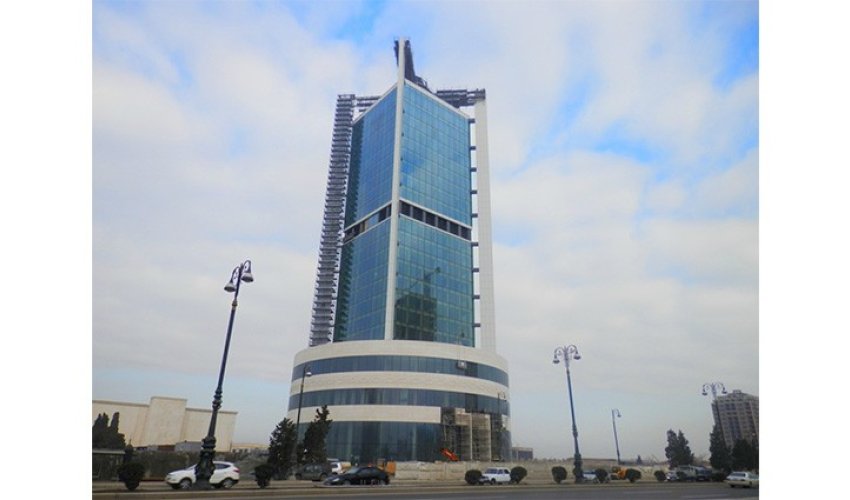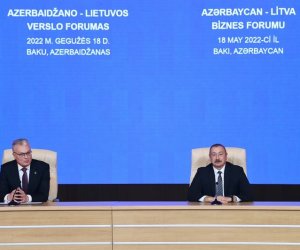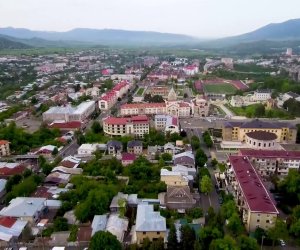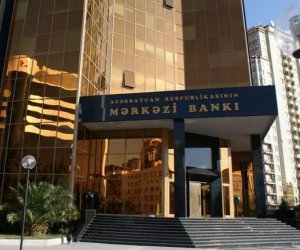Azerbaijan economy: Parliament approves amendments to state budget

(Economist Intelligence Unit) -- On February 23, Azerbaijani parliament approved the government's amendments to the 2016 state budget, setting a deficit target equivalent to 3.7% of GDP. The assumptions underpinning the budget-which has been set on the basis of an average oil price in 2016 of US$25/barrel-appear, if anything, slightly conservative, and the deficit may prove to be smaller as a share of GDP.
Overall, we believe that the government's budget position remains manageable, and that the country's fiscal buffers will remain substantial. However, this will only be achieved through a sharp reduction in spending in real terms. The full costs of the banking crisis also remain unclear, and could add significantly to government liabilities this year.
As expected, the government has increased expenditure following the currency devaluation in December 2015. This will push up both inflation and the value of oil revenue in manat terms. Operational spending will now total Manat18.5bn (US$11.9bn), up from Manat16.3bn in the original 2016 budget. Spending will rise to 33.9% of GDP, from 32.7% in 2015. However, it will grow by only 4% year on year, far below the rate of inflation. We forecast that inflation will average around 12% this year.
The budget plans therefore imply a sharp fall in government expenditure in real terms, which will further hit economic activity in the short term. The largest cuts are likely to fall on government spending on infrastructure-this has already become evident in preliminary data. The construction sector, which is highly dependent on public contracts, declined by 25% year on year in January 2016.
The government is now targeting revenue of Manat16.8bn, up from a pre-devaluation estimate of Manat14.6bn. This nevertheless represents a year-on-year decline in total revenue of 2.1% in nominal terms. The government has increased the annual transfer from the State Oil Fund of the Republic of Azerbaijan (SOFAZ, the sovereign wealth fund into which most oil revenue is initially paid) to Manat7.6bn, from Manat6bn previously. This still represents a year-on-year cut of around 6% in the value of the transfer.
SOFAZ buffers will remain large
The devaluation of the manat and low export revenue from the oil sector will lead to a sharp fall in GDP in US dollar terms this year. As a result, we expect the ratio of SOFAZ reserves to GDP to increase to over 100% in 2016. Nevertheless, the authorities appear keen to limit the fall in the nominal dollar value of the sovereign wealth fund, even at the expense of higher borrowing and a sharp real-terms fall in spending. Based on our projection of an average oil price this year of US$42.9/b, we forecast that SOFAZ revenue from the oil sector will total around Manat9.7bn. In addition to the budget transfer, the government plans to spend around Manat2.2bn of SOFAZ assets on infrastructure projects, principally the development of the Southern Gas Corridor, which is to link Azerbaijani gas supplies to Europe via Turkey.
Overall, we project that the value of the sovereign wealth fund will be virtually unchanged in dollar terms this year. However, at an oil price of US$25/b (the level the government has formally used to set the spending parameters), SOFAZ revenue will reach just Manat5.7bn. We project that this would result in a fall of US$2.5bn in the size of the fund.
Assuming a SOFAZ transfer of Manat7.6bn, the government's budget implies a revenue target from the non-oil sector of Manat9.2bn, a rise of just 2% year on year. Although the economy will shrink in real terms, we expect nominal growth of the non-oil sector to be above 10% this year as a result of high inflation. Therefore, although profit taxes and value-added tax (VAT) may decline as a share of non-oil GDP, the government's revenue target seems a little conservative.
The government's forecast for nominal GDP also appears to be too low. Under the budget plans and a US$25/b oil price the deficit will total Manat1.67bn. The government expects that this shortfall will be equivalent to 3.7% of GDP, implying nominal GDP of Manat45bn. On the basis of our higher oil price projection of US$42.9/b this year, we currently forecast that nominal GDP will reach Manat55.2bn. As a result, assuming that the deficit stays within Manat1.67bn, the deficit will reach only 3.1% of GDP.
Conclusions
The visit by representatives of the IMF and the World Bank in late January 2016 has raised speculation that the government could seek support from multilateral financial institutions to cover its budget deficit. However, even with an average oil price of US$25/b-below the current level and significantly below our forecast for the year-the budget deficit target appears both achievable and manageable. In such a scenario, we project that the planned SOFAZ transfer would result in a decline in the sovereign wealth fund of around US$2.5bn. However, Azerbaijan's fiscal buffers will remain substantial at the end of 2016, with SOFAZ assets of over US$30bn. The Azerbaijani government is able to meet its entire budget deficit from SOFAZ funds if necessary.
Moreover, the December 2015 currency devaluation will push up the size of SOFAZ to over 100% of GDP this year, from 68% in 2015. The government's projection for revenue from the non-oil sector also looks achievable, even in the context of a recession. The budget target implies an increase in non-oil revenue of just 2%, despite the fact that inflation is likely to exceed 10% this year.
Overall, the risk of serious sovereign financing problems appears to be low. However, this will come at the cost of a sharp real-terms cut in spending, which will further weigh on the economy. In addition, the government and the Central Bank of Azerbaijan (CBA) may need to provide further funds to support key infrastructure projects, most notably the Southern Gas Corridor, and to bail-out out major banks, which are currently experiencing a serious crisis. This could lead to a higher than anticipated drawdown of SOFAZ assets this year.
www.ann.az
Similar news
Similar news




































 Photo
Photo 



 Video
Video 

